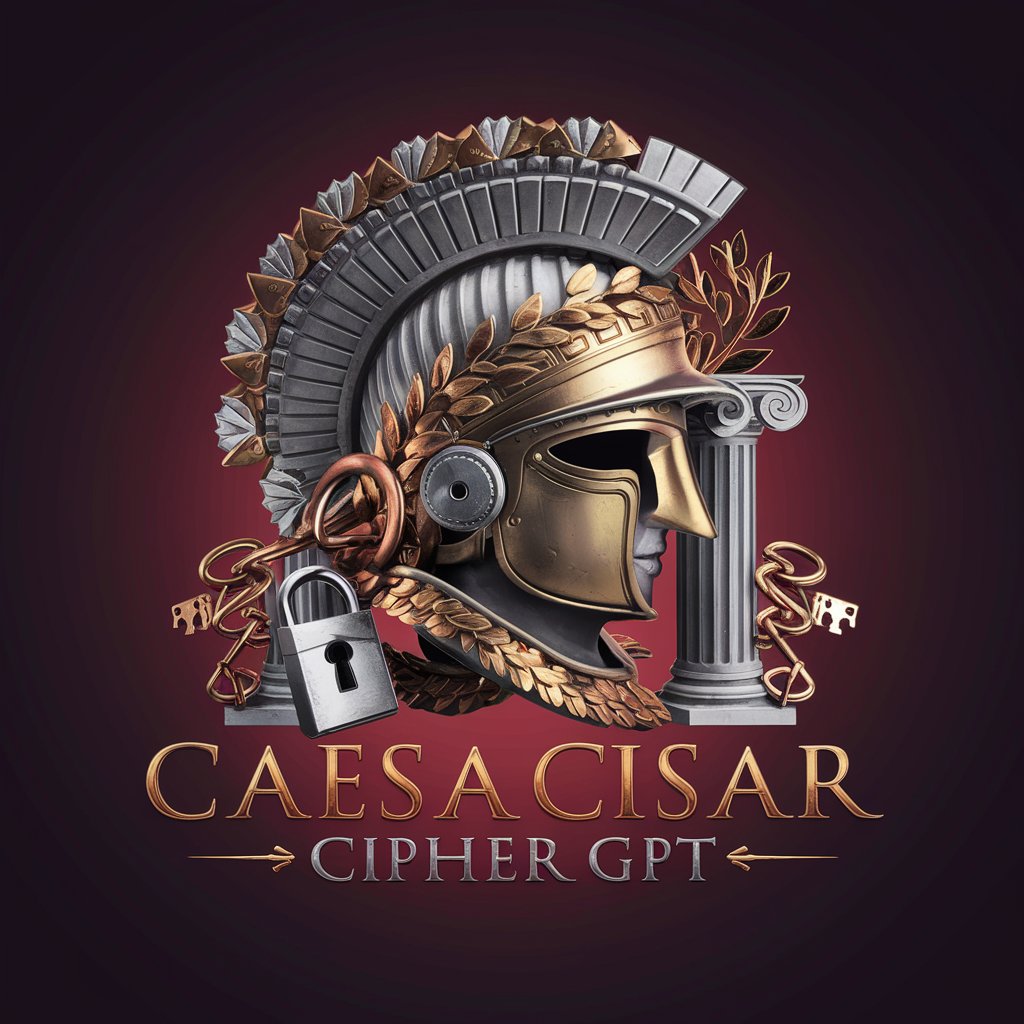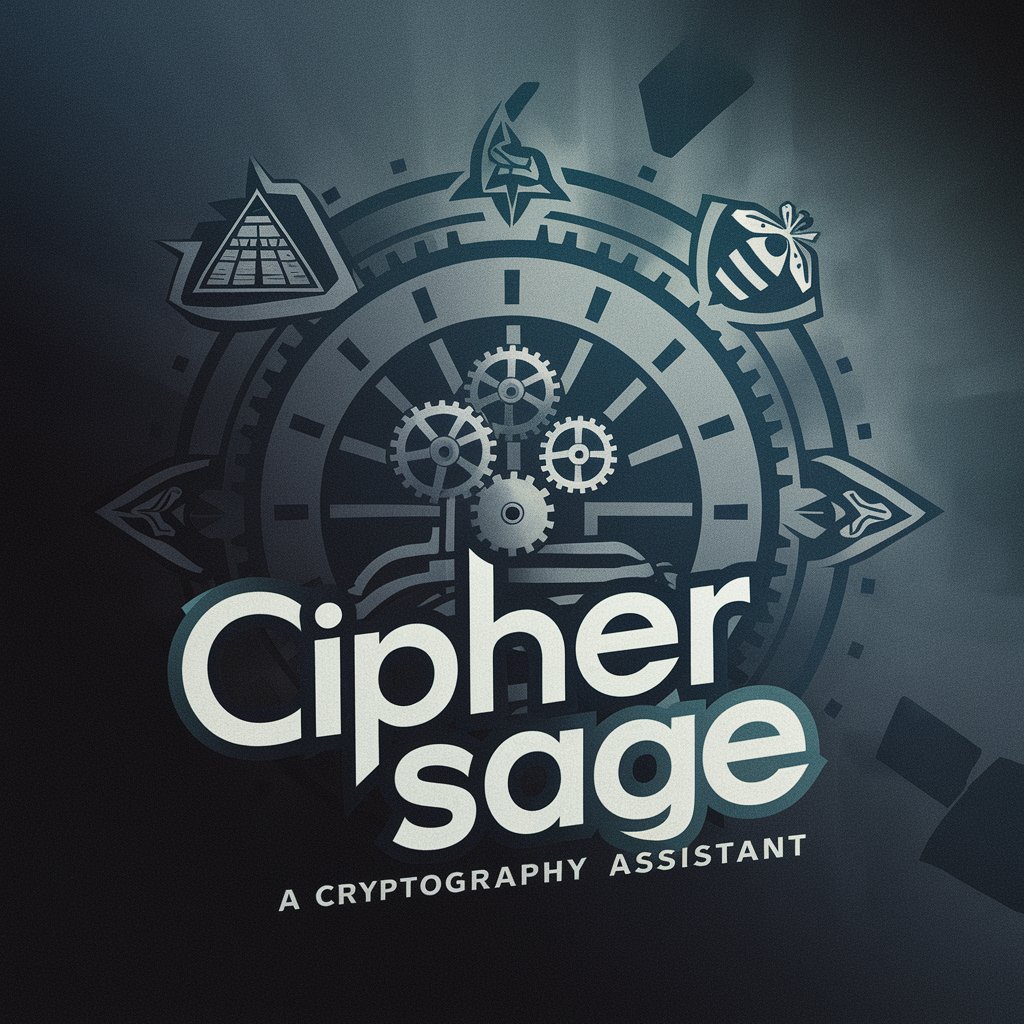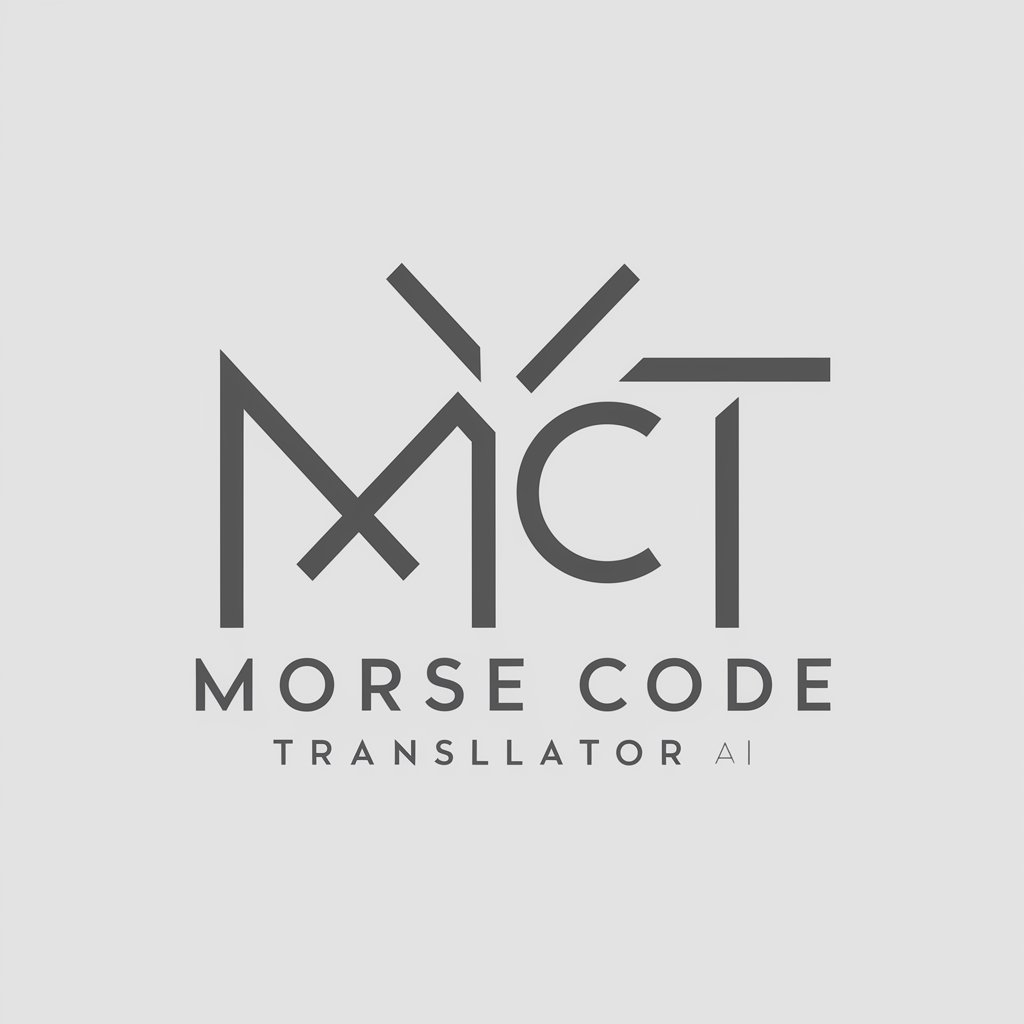6 GPTs for Message Encryption Powered by AI for Free of 2026
AI GPTs for Message Encryption are advanced tools built on Generative Pre-trained Transformer technology, specifically designed to enhance security and privacy in digital communications. These tools leverage the power of AI to encrypt and decrypt messages, ensuring that sensitive information remains confidential and secure during transmission. By integrating GPTs with encryption algorithms, these tools can offer tailor-made security solutions, adapting to various levels of complexity and specificity required by the task at hand. The role of GPTs in this domain is crucial, providing intelligent, adaptable, and highly secure encryption services that can understand context, generate encryption keys, or even simulate potential security threats for better defense mechanisms.
Top 6 GPTs for Message Encryption are: Caesar the Cipher Master AI🔐,Caesar Cipher,Cipher Sage,Secret Code Buddy,Secret Chamber,Morse Code Translator
Caesar the Cipher Master AI🔐
Unlocking Secrets with AI-Powered Cryptography

Caesar Cipher
Unlocking history with AI-powered encryption.

Cipher Sage
Unlocking Secrets with AI

Secret Code Buddy
Decrypting the past, one cipher at a time

Secret Chamber
Secure Your Secrets with AI

Morse Code Translator
Instant Morse Encoding and Decoding, AI-powered

Key Characteristics and Capabilities
AI GPTs for Message Encryption excel in adaptability, offering solutions ranging from straightforward text encryption to complex security protocols. Unique features include the ability to learn and adapt to new encryption languages and techniques, technical support for a wide range of cryptographic standards, advanced web searching for the latest security threats, image encryption capabilities, and comprehensive data analysis for identifying potential vulnerabilities. These tools are distinguished by their intelligent learning capabilities, ensuring that they remain at the forefront of encryption technology.
Who Benefits from Message Encryption GPTs
These AI GPT tools are designed for a broad audience, including individuals new to cybersecurity, software developers, and seasoned professionals in the field of information security. They are accessible to those without coding skills through user-friendly interfaces, while also providing extensive customization options for those with technical expertise. This makes them a versatile choice for anyone looking to enhance message security, whether for personal use or within an organizational context.
Try Our other AI GPTs tools for Free
Cipher Analysis
Discover AI-powered GPT tools for advanced Cipher Analysis, designed for decoding complex ciphers with ease. Ideal for enthusiasts and professionals in security and research.
Crypto Studies
Discover how AI GPTs for Crypto Studies revolutionize the way we understand and interact with the cryptocurrency market, offering tailored insights, predictions, and educational resources.
Targeted Creation
Discover how AI GPTs for Targeted Creation can revolutionize productivity and creativity in your field with tailored solutions designed for specific domains.
Manuscript Crafting
Revolutionize your writing process with AI GPT tools for Manuscript Crafting, designed to enhance creativity, efficiency, and precision in your manuscripts.
Mechanics Strategy
Discover how AI GPTs for Mechanics Strategy revolutionize mechanical planning and analysis, offering tailored, data-driven insights for professionals and novices alike.
Request Management
Discover how AI GPTs for Request Management revolutionize task handling with automation, natural language processing, and adaptable solutions for improved efficiency and user satisfaction.
Expanding the Role of GPTs in Secure Communications
AI GPTs for Message Encryption are revolutionizing the way we think about secure communications. With their ability to provide customized encryption solutions across different sectors, these tools are not just about securing messages but about fostering a safer digital environment. Their user-friendly interfaces and integration capabilities make them an invaluable asset for enhancing security protocols without complicating the user experience.
Frequently Asked Questions
What exactly are AI GPTs for Message Encryption?
AI GPTs for Message Encryption are artificial intelligence tools designed to secure digital communications through advanced encryption and decryption techniques, leveraging GPT technology.
How do these tools adapt to different encryption needs?
They use machine learning to understand and adapt to various encryption standards and languages, ensuring they can provide tailored security solutions for any scenario.
Can non-technical users easily use these encryption tools?
Yes, these tools are designed with user-friendly interfaces that allow individuals without coding skills to encrypt and decrypt messages securely.
What makes AI GPTs stand out in message encryption?
Their ability to learn and adapt to new encryption techniques and threats, providing cutting-edge security solutions.
Are these tools suitable for professional cybersecurity environments?
Absolutely, they offer advanced features and customization options that meet the complex requirements of professional cybersecurity tasks.
How do these tools handle image encryption?
AI GPTs for Message Encryption can analyze and encrypt image data, ensuring visual information is securely transmitted.
Can these GPT tools predict and simulate security threats?
Yes, they can simulate potential security threats to help develop better defense mechanisms against attacks.
Is it possible to integrate these tools with existing systems?
Definitely, their adaptable nature allows for seamless integration with existing communication and security systems, enhancing overall protection.